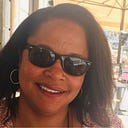Member-only story
Black Kids Must Read To Kill A Mockingbird, But Now You’re Uncomfortable?
Why are books about people that don’t look like you threatening?
Listen to the audio version here.
This is dedicated to the (hopefully) small sub-set of parents screaming at school board meetings that the current version of U.S. history is “uncomfortable,” diversity is Satan’s work, and white kids shouldn’t be made to “feel bad.”
I folded my legs under that desk-chair hybrid thingy like a teenage flamingo, mechanical pencil poised to take notes, as a sing-songy voice said, “Welcome parents to ninth grade English! I am so excited that our first unit is an exploration of To Kill A Mockingbird. We’ll be studying it for the next eight weeks. It’s one of my favorite books.”
Losartan addled blood pooled in my feet. To Kill A Mockingbird? Are you serious? Eight entire weeks? Why?
To Kill A Mockingbird by Harper Lee is widely considered a classic of American literature. It was awarded the Pulitzer Prize for fiction in 1961. It is one of the most read books about race in America and is assigned reading in many Junior and Senior High Schools.
The story of racial inequality, injustice and class is told through the eyes of a white child about the trial in 1933 Alabama of a Black man accused of raping a…
